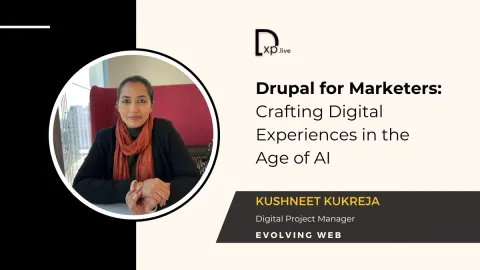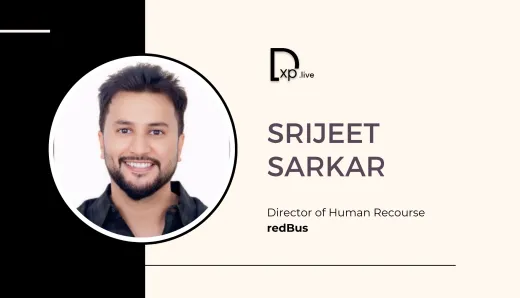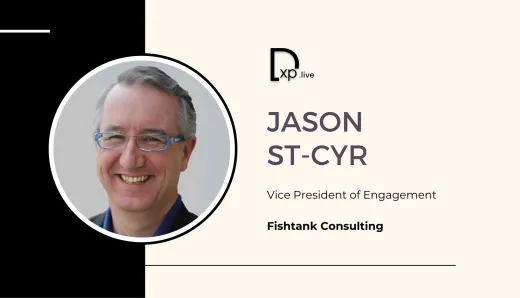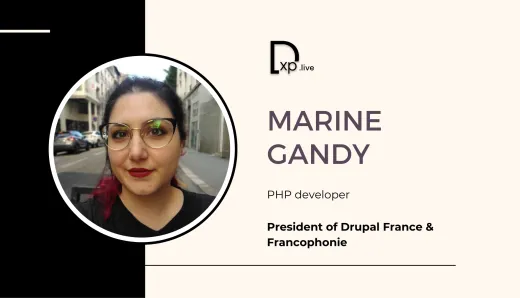Drupal for Marketers: Kushneet Kukreja on Crafting Digital Experiences in the Age of AI
Kushneet Kukreja of Evolving Web on Balancing Technology, Content, and Community in Modern Web Development

Kushneet Kukreja is a Digital Project Manager at Evolving Web, a leading web agency specializing in Drupal development. With a background in content writing and marketing, Kushneet brings a unique perspective to her role, bridging the gap between technical development and user-centric design. She has been working with Drupal for three years, following two and a half years of experience with WordPress.
At Evolving Web, Kushneet manages digital projects, particularly for clients in the higher education sector. She plays a crucial role in translating complex technical concepts for clients and team members, ensuring smooth collaboration between designers, developers, and stakeholders.
Kushneet is also an active volunteer in the Drupal community, participating in the Promote Drupal initiative. She is passionate about spreading awareness of Drupal's capabilities and fostering community growth.
Despite working remotely, Kushneet remains engaged with Drupal events and initiatives, constantly seeking ways to contribute to the ecosystem. Her expertise lies in project management, and bridging the gap between technical implementation and user experience.
Kushneet's insights on the evolving role of content in the age of AI and her balanced view on CMS platforms make her a valuable voice in the digital experience landscape.
Content management systems play a crucial role in shaping how organizations present themselves online. Drupal, a powerful and flexible open-source CMS, has been at the forefront of this digital revolution. To gain insights into the world of Drupal and its impact on modern web development, we sat down with Kushneet Kukreja, a Digital Project Manager at Evolving Web.

Kushneet brings a unique perspective to the table, with a background in content writing and marketing, coupled with hands-on experience in both WordPress and Drupal. In this interview, she shares her thoughts on Drupal's role in creating engaging digital experiences, the importance of community in open-source projects, and the evolving landscape of content management in the age of AI.
From discussing the technical aspects of project management to exploring the future of content creation, Kushneet offers valuable insights for both seasoned developers and those new to the world of Drupal. Join us as we delve into the intricacies of modern web development and the collaborative spirit that drives the Drupal community forward.
Q: As a digital project manager at Evolving Web, how do you see the importance of Drupal in building modern digital experiences?
Kushneet: Drupal offers great flexibility, which is crucial for creating modern, customized solutions. Its wide variety of modules allows us to easily build modular architectures and provide solutions for complex content types. This is particularly useful when working with clients like those in higher education, where content relationships can become intricate. Drupal excels in seamlessly integrating different APIs and enabling personalizations. It has truly been a champion in providing modern digital experiences for many of our clients.
Q: You mentioned an interest in Drupal events. What draws you to these events, and how do you think they contribute to the broader digital ecosystem?
Kushneet: While I haven't had the opportunity to attend many events due to remote work, I'm always eager to participate. What's impressive about Drupal is its active and large community, not just in North America but worldwide. There's a collaborative spirit where everyone works together to build a better CMS and better solutions for Drupal users. These events showcase the camaraderie within the community and provide a platform for sharing knowledge, discussing solutions, and fostering healthy relationships among community members.
Q: Given your background in content writing and marketing, how do you think Drupal empowers content creators and marketers?
Kushneet: Drupal is user-friendly with a manageable learning curve. From my experience transitioning from WordPress to Drupal, I found it relatively easy to understand the backend and how things work. This understanding is crucial for project managers like me who need to answer client questions without always relying on developers.
Drupal offers great flexibility for content creators. It provides simple solutions to common formatting issues and makes it easy to implement complex content strategies. The platform allows for easy categorization and use of taxonomies, which is vital for content marketers. The customization options in Drupal make it possible to implement content strategies exactly as envisioned, which is a significant advantage for content marketing efforts.
Q: How do you balance the technical aspects of digital project management with delivering engaging, user-centric experiences?
Kushneet: This balance is a common challenge in every project. We often face situations where designers and UX/UI teams aim for amazing user experiences with wonderful animations, while also considering accessibility. However, these designs sometimes clash with technical limitations or considerations for content editors.
As a project manager, I often become a translator between teams. I need to communicate the developer's technical constraints to designers in a way they understand, and vice versa. The same applies when communicating with clients who may not have the needed technical knowledge. It's about finding the right middle ground that provides an optimal experience for users while ensuring the code we're building is sound. We always strive to find alternative solutions when direct implementation isn't possible, ensuring we don't compromise on either the user experience or the technical integrity.
Q: How do you see the role of content evolving in the context of digital transformation, especially with the advent of large language models and generative AI?
Kushneet: While AI tools are increasingly common in content creation, they can't replace human intelligence and the personal touch. AI can assist with research, quality checks, and speeding up certain processes, but it lacks the ability to truly understand a company's story or goals the way a human writer can after conducting interviews and personal interactions.
I believe these tools should be used in an assistive nature, helping to fast-track research or improve language quality. However, the final product, especially when it comes to creative or personalized writing, still requires human input. The human brain remains irreplaceable for adding that personal perspective and creating truly engaging content.
Q: How is Evolving Web incorporating AI or LLMs into your content strategies?
Kushneet: At Evolving Web, we're using AI tools primarily in an assistive capacity, mainly to help with research and similar tasks. However, our actual content writing and strategy formulation are still done by human writers and strategists.
For content writing, while we may use AI to assist with research, the final product that goes to our clients or into our RFPs is always human-written. We believe in leveraging technology to improve efficiency, but we rely on human expertise and creativity for the core of our work.
Q: Can you tell us about your involvement with the Drupal community and any ongoing initiatives?
Kushneet: I'm involved with the Promote Drupal initiative, which has various pathways and a great team of volunteers. We have an active social media team promoting Drupal across platforms. One challenge we're facing is finding volunteers to help with long-form content and press releases. We're not relying on AI for this; instead, we're looking for community members who are knowledgeable about current happenings and can produce thought leadership articles.
We're also working on revamping the design for the Drupal site, with involvement from key figures in the Drupal community and Drupal Association. It's inspiring to see volunteers from around the world dedicating their time and expertise to these initiatives, driven purely by their passion for the community. We're always welcoming more volunteers to join these efforts.

Q: You have experience with both WordPress and Drupal. Comparing these two, which one do you consider a better content management system from a marketing perspective, content perspective, ease of use, flexibility, and user navigation?
Kushneet: That's a tough question. It really depends on the type of solutions you're looking for. I've seen WordPress solve many problems for our clients, and it's becoming more flexible than it was 5 or 10 years ago. However, Drupal has had that flexibility from day one.
WordPress is more widely adopted and popular, while Drupal has a smaller market share at present. But with initiatives like Promote Drupal, we're trying to spread the word that what you're trying to achieve with WordPress, you might be able to achieve even more with Drupal.
Drupal offers more modules and features, giving users more options and solutions for various types of problems. It's about getting the word out more and helping people realize that if another platform falls short somewhere, Drupal could be the answer.
From my perspective, while both have their strengths, Drupal's flexibility and extensive module ecosystem make it a powerful choice for more complex or customized solutions.
Q: Is there anything specifically related to Drupal that you'd like to add or share about your involvement with Drupal projects?
Kushneet: I'd like to highlight the Promote Drupal initiative again
For revamping the Drupal.org website design, we have great leaders involved, including Shawn Perritt, Suzanne Dergacheva, and representatives from the Drupal Association like Tim and Christina.
We're always welcoming more volunteers to join these efforts. It's a great way to get involved and contribute to the Drupal ecosystem.




